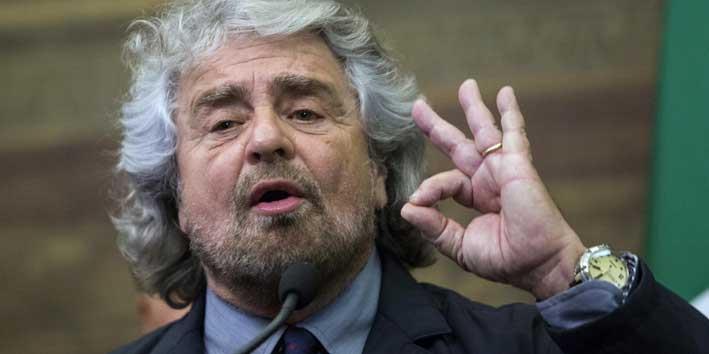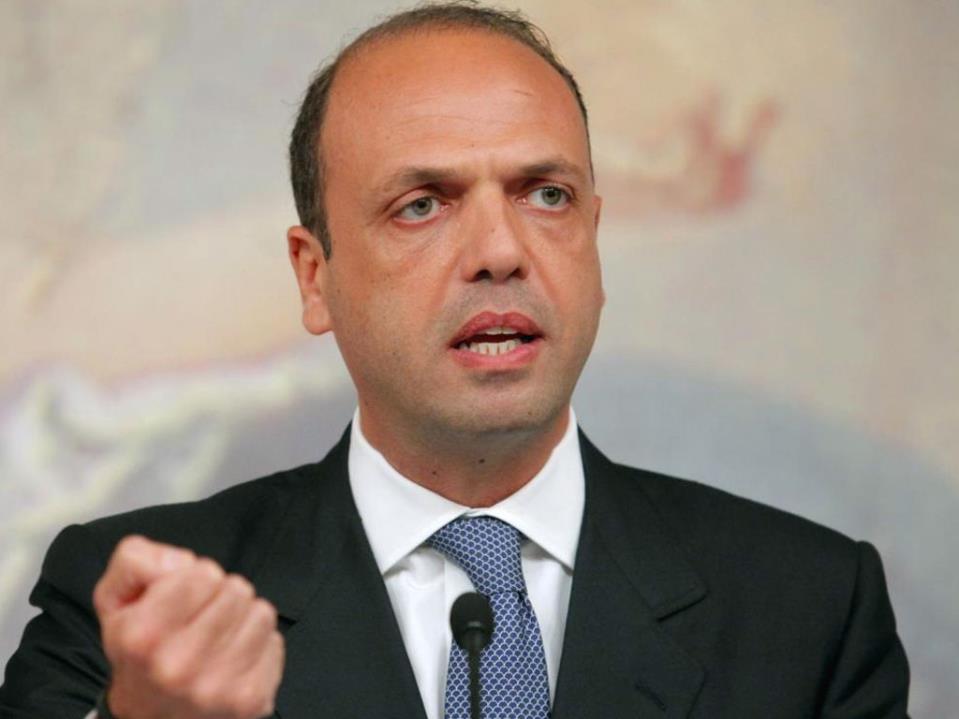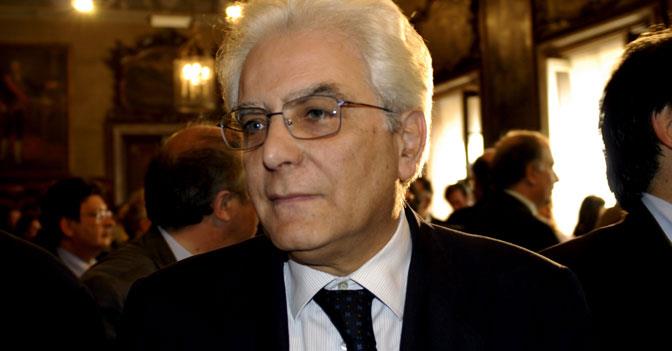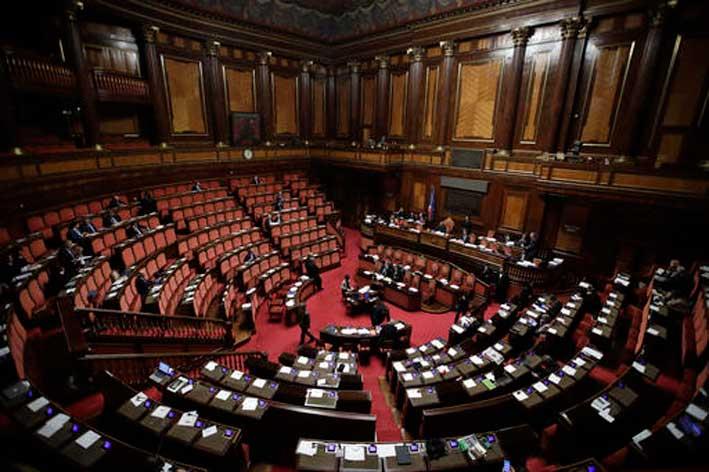Italy's latest government was formed and rapidly sworn in Monday, a center-left coalition headed by new Premier Paolo Gentiloni and strikingly similar in makeup to the just-ended one that was led by Matteo Renzi.
The composition of the coalition government Gentiloni created fueled fresh calls from opposition forces and even from within his ruling Democrat party for hastened elections.
Gentiloni, 62, served as Renzi's foreign minister until the latter resigned after voters resoundingly defeated a Dec. 4 referendum on government-backed constitutional reforms.
The new prime minister is a staunch backer of Renzi's. Even before he announced his Cabinet, some observers took to dubbing it the "Renziloni" government.
Gentiloni is "Renzi's double," Roberto Fico, a leader of the populist 5-Star Movement, said in comments to Corriere della Sera daily.

The 5-Star Movement, founded by comic Beppe Grillo, is Parliament's largest opposition force and eager for elections soon in a bid to gain its first premiership.
Critical of harsh austerity measures advocated by European Union leaders, they want a popular referendum on whether Italy should keep the euro as its official currency.
Among the holdovers from Renzi's Cabinet are economist Pier Carlo Padoan, who remains as finance minister, and Roberta Pinotti, who will continues as defense minister.

Angelino Alfano, who crossed over a few years ago from former Silvio Berlusconi's center-right to become the leading non-Democrat in Renzi's government, got a new Cabinet post.
Alfano switches from interior minister, where he dealt with the flood of migrants across the Mediterranean to Italian shores as well as domestic anti-terrorism strategy, to foreign minister. His new brief will see him grapple with both issues from an international perspective.
After seeing 64 governments now in some 70 years, Italians are used to political crisis. This one, prompted by Renzi's resignation last week, had a rapid resolution.

Italy's head of state, President Sergio Mattarella, summoned Gentiloni to the Quirinal presidential palace on Sunday to ask him to try to forge a government, working with the same Democrat majority in Parliament.
By Monday night, Gentiloni was back at the palace and sworn in as premier, along with the ministers whose names he had announced only 90 minutes earlier.
Gentiloni will lay out his coalition's platform to Parliament Tuesday, ahead of required confidence votes on the new government in both chambers.
But while the immediate crisis has ended, Italy's politics remain roiled. Opposition parties, and even prominent critics within the Democratic Party headed by Renzi, are sharply critical of what they see as a Renzi copycat government.

Matteo Salvini, who heads the anti-migrant Northern League, said he would hit the streets of Palermo and Milan this weekend seeking signatures to "ask for elections immediately."
Later, on Facebook, Salvini slammed the minor changes in the Cabinet.
"It's not a government. It's a jumble of chair-holders," he said.
Five-Star leader Grillo called for rallies in Italy's public squares to build momentum for early elections.
Former Premier Massimo D'Alema joined some others in the Democratic Party who viewed the referendum debacle as an expression of citizens' impatience for early elections.
"I think the government has a limited assignment," D'Alema said.
But many, starting with President Mattarella, agree Italy must first urgently overhaul its election law to make the country more governable.

The current law has one set of electoral rules for the Senate and another for the lower Chamber of Deputies. That's because voters in the recent referendum rejected changes that would have made the Senate not directly elected.
Besides changing the election law, Gentiloni said the new government's priorities include efforts to help "the middle class, those suffering" economically, especially "in the south where (lack of) work is a greater-than-ever emergency."
Youth unemployment nationally is running at 36 percent, recently down from 40 percent, and as high as 50 percent in southern Italy. Renzi's labor reforms he put much of his prestige barely nudged the economy to grow.
The lackluster economy factors into the crisis suffered by Italy's banking sector, burdened with non-performing loans.
In forming the new government, Gentiloni alienated a recently-gained ally of Renzi's by rebuffing demands for Cabinet posts from a small centrist party leader, Sen. Denis Verdini.
Verdini, a defector from former Premier Silvio Berlusconi's Forza Italia party, announced he won't back Gentiloni's government in Parliament's confidence vote. That would narrow Gentiloni's margin for victory.
Assuming disgruntled Democrats do not betray him, the new government should still win the confidence vote.